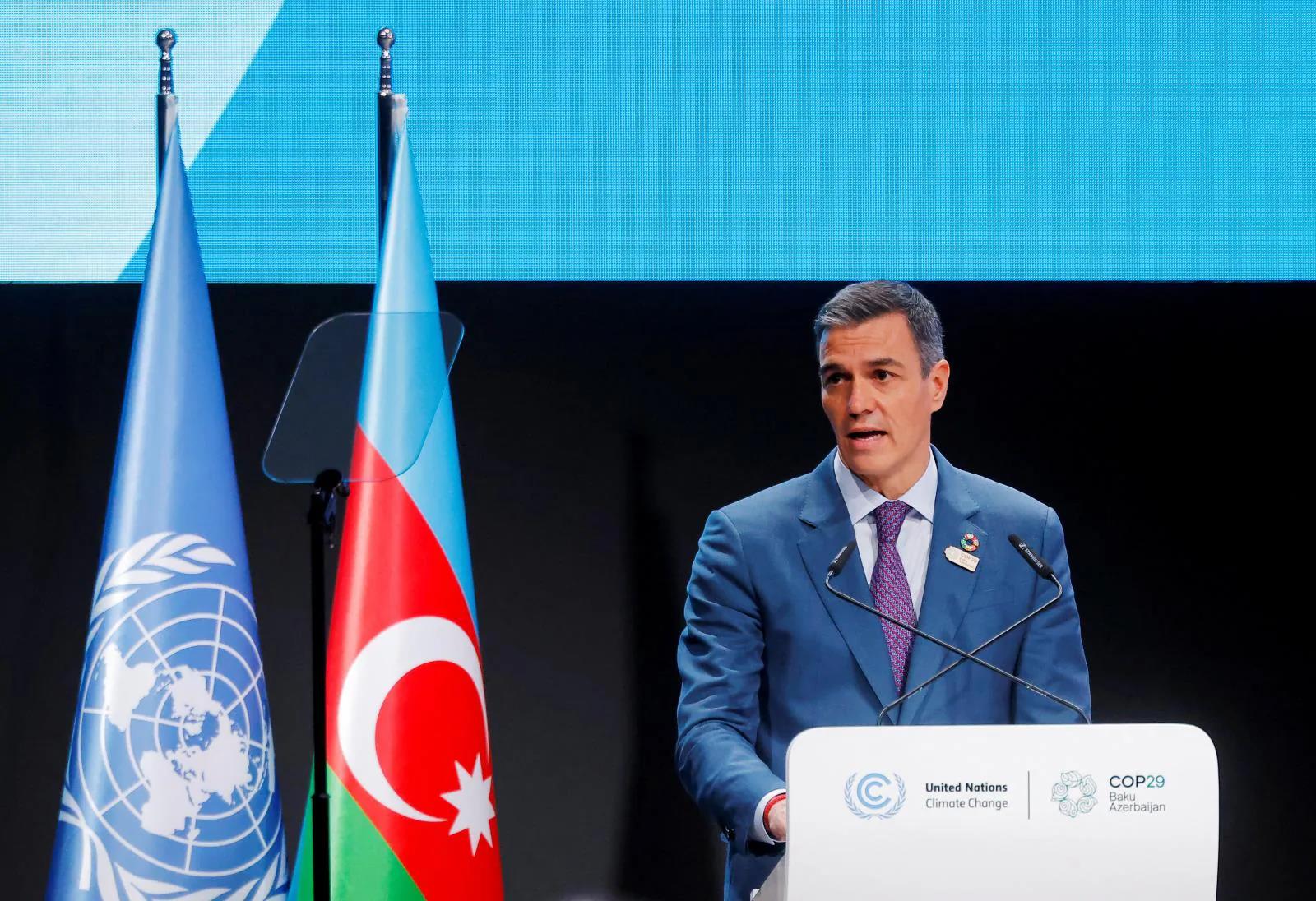Spain's PM Pedro Sánchez at COP29: 'Climate change kills and it has done so in Valencia'
The Spanish prime minister focused his message on the disaster caused by the 'Dana' and called on governments not to take a step backwards in the fight against climate change
Spanish prime minister Pedro Sánchez has told this year's United Nations climate change conference (COP29) in Baku in Azerbaijan that "climate change kills". When making reference to the devastating 'Dana' floods that swept through southeastern Spain two weeks ago, Sánchez said: "I have come here to tell you that climate change kills, and in Valencia it has killed 220 of my compatriots".
That kicked off his five-minute speech at the COP29 on Tuesday 12 November, where he added: "There are still people missing and hundreds of homes covered in mud". "Some still doubt the scientific evidence of climate change. Let's not drag our feet. We know what the problem is and what needs to be done. We have seen governments dither and walk backwards just to make the rich richer. This formula is leading us to disaster," he said.
Minutes earlier, in another speech, he called for the need for a larger budget. "It is not enough. We have to innovate our financing system, incorporate more and better the private sector, look for new sources of financing such as large fortunes, we have to reflect a new reality of a world that has changed," Sánchez said.
The rich singled out
With Sánchez's speech, the floods in Valencia have been referenced twice in two days at the annual climate change event. In his opening speech, COP29 president Mukhtar Babayev honoured "the victims of the floods in Spain". Sánchez blamed the catastrophe on climate change, but UN secretary general António Guterres said: "The rich cause the problem, the poor pay the highest price".
The head of the UN recalled the Oxfam report of last October: "The richest billionaires emit more carbon in an hour and a half than the average person does in a lifetime". Words which would've triggered many world leaders at the event, particularly those who arrived via private planes.
The opportunity to curb greenhouse gas emissions is in your hands, was the message at COP29. Last year, the figure set a new record high, rising by 1.3% compared to 2022. Despite agreements and pledges, humans emitted 57.1 gigatonnes of CO2 equivalent, according to the UN. This translates, Guterres said, into "families fearing for their lives because of the next storm", "workers collapsing in the heat", "children going hungry because of drought" and "floods devastating communities and infrastructure". "And no one is spared," he added.
There is little more than five years to 2030, a quarter of a century has already passed and progress is far off. "Only you can beat the 1.5C clock. Tick, tick, we are running out of time," Guterres added.

